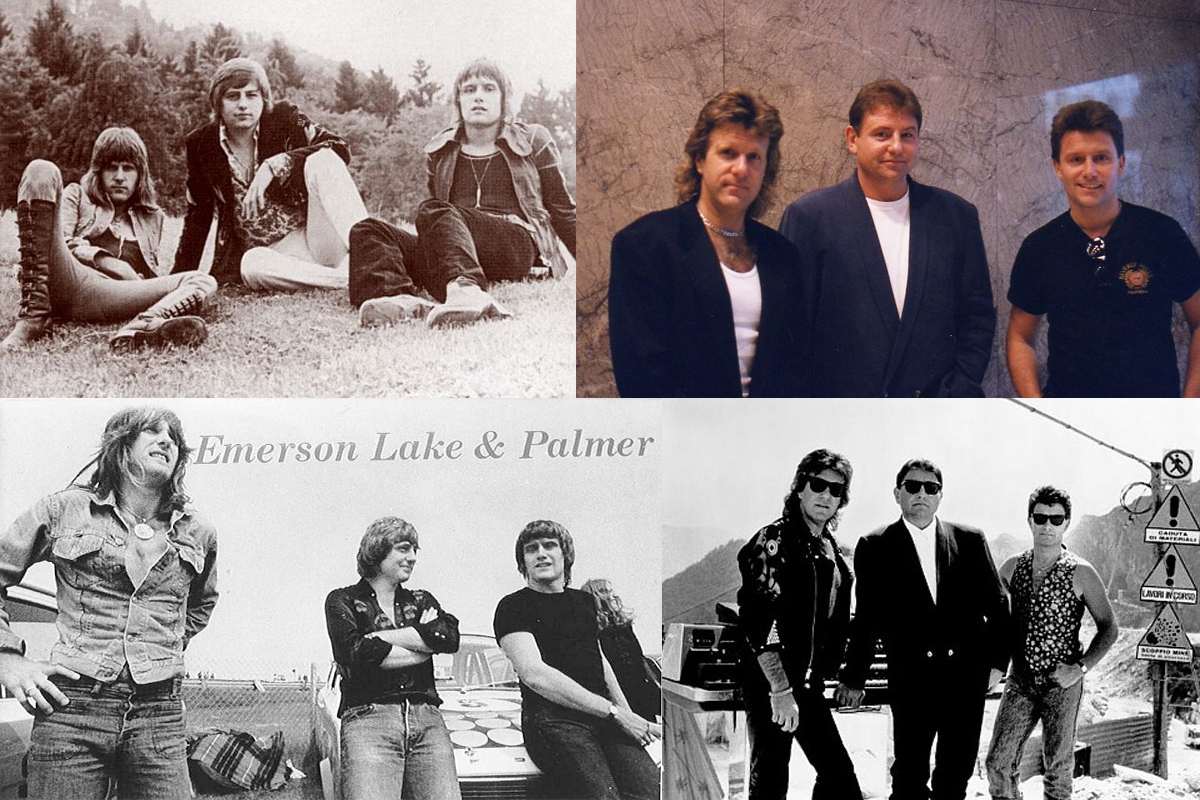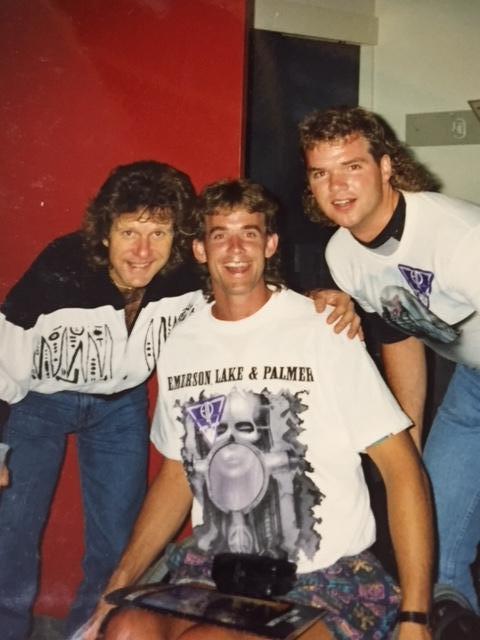
Emerson, Lake and Palmer turns 50: A legacy worth celebrating
by Stuart Chambers
It has been 50 years since the supergroup Emerson, Lake and Palmer (ELP) played the Isle of Wight festival in front of an estimated 600,000 people, a concert that made them international superstars overnight. Formed in 1970, ELP was known for the virtuosity of keyboardist Keith Emerson, the acoustic guitar playing and melodic choir-like voice of Greg Lake, and the jazz-influenced drumming of Carl Palmer.
ELP were giants in the field of progressive rock, garnering global recognition because of their emphasis on complex compositions, stunning live performances, and technological innovation. Theirs is a legacy worth celebrating.
As Rolling Stone magazine noted, ELP were musicians who avoided “the confines of two-minute singles and dance-ready beats.” Instead, the band wrote complicated arrangements that borrowed from classical music, jazz, and rock and roll. The results were extraordinary.
For instance, when the album Tarkus (1971) was released, the title track was a 20-minute, multi-movement concept piece, based on a 5/4 time signature, that epitomized compositional dexterity. Decades after its release, Tarkus has been adopted by orchestras around the world as part of their repertoire.
As well, the album Brain Salad Surgery (1973) featured “Karn Evil 9,” a 30-minute track broken up into three different impressions. As proof of its lasting impact, this prog-rock classic will serve as the inspiration for an upcoming sci-fi film by Radar Pictures, the studio behind the recent Jumanji reboots.
But the power of ELP’s compositions elevated during live performances. In 1977 during the Works tour, the band was augmented by a 70-piece orchestra and choir. Playing in front of nearly 80,000 fans at Montreal’s Olympic Stadium, ELP showcased songs like Pirates, which takes the listener on a musical adventure on the high seas. Pictures of an Exhibition and Fanfare for the Common Man were perfect examples of how ELP fused classical and rock music to near perfection.
Showmanship was also an integral part of ELP’s concert experience. With over 400,000 people in attendance at the California Jam rock music festival (1974), Emerson levitated 20 feet above the stage, tied to a Steinway grand piano. As he played, the piano spun in circles. Emerson’s theatrics also included jumping over his Hammond organ, playing it backwards, and stabbing it with knives.

In terms of technological innovation, Keith Emerson was known as “the Hendrix of the keyboards.” Although Greg Lake wrote the song “Lucky Man,” the Moog synthesizer solo that ends the track is considered a landmark in electronic music. Synth & Software recently noted how Emerson’s improvised Moog solo was “a trumpet blast announcing the coming of the modern synthesizer age.”
In 2010, when Emerson received the prestigious annual Frankfurt Music Prize for his lifetime musical achievements, the Board of Trustees described him as “an innovative artist who has not only pushed out the genre's boundaries with his music but also had a decisive influence on the technology of electronic keyboard instruments through his keyboard playing.” Dominating progressive rock for a quarter century, Keith Emerson is the gold standard by which all keyboardists are compared.
The accolades ELP received were numerous. Palmer was named one of the greatest rock drummers of all time by Modern Drummer magazine. In 2013, Palmer was inducted into the Classic Drummer Hall of Fame.
Likewise, in January 2016, the famous Conservatorio Nicolini of Piacenza, Italy, awarded Greg Lake with the very first Honorary Degree ever given by a Conservatorio.
In September 2013, Orchestra Kentucky of Bowling Green presented Emerson with a Lifetime Achievement Award in the Arts and Humanities "for his role in bringing classical music to the masses.” On January 24, 2014, Emerson was inducted into the Hammond Hall of Fame.
From 1970-1977, ELP changed the musical landscape by breaking all the rules. In the golden era of progressive rock, the group was the ultimate musical expression. There were simply no limits to their creativity.
Fortunately, for progressive rock aficionados, the music of ELP remains timeless. That is why the show never really ends.
Stuart Chambers, PhD, teaches popular culture in the Department of Communication at the University of Ottawa, Canada. He interviewed the members of Emerson, Lake and Palmer on several occasions between 1988-1997.








